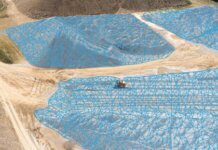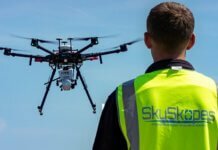 For the very first time, the Federal Aviation Administration (FAA) has authorized a commercial unmanned aircraft system (UAS) operation over land.
For the very first time, the Federal Aviation Administration (FAA) has authorized a commercial unmanned aircraft system (UAS) operation over land.
The agency has given approval for energy corporation BP and UAS manufacturer AeroVironment to fly an AeroVironment Puma AE for aerial surveys on Alaska's North Slope.
Anthony Foxx, transportation secretary, calls this ‘another important step toward broader commercial use of unmanned aircraft.’
The FAA issued a Certificate of Waiver or Authorization to survey BP pipelines, roads and equipment at Prudhoe Bay, Alaska – the largest oilfield in the U.S., the agency says. AeroVironment performed the first flight for BP on June 8.
The Puma AE is a small, hand-launched UAS that is about 4 1/2 feet long and has a wingspan of 9 feet. Using the information generated by the Puma’s sensors, BP hopes to target maintenance activities on specific roads and infrastructure, which will save time and support safety and operational reliability goals and help to protect the sensitive North Slope environment.
Last summer, the FAA issued restricted category type certificates to the Puma and Insitu’s Scan Eagle, another small UAS. The certificates were limited to aerial surveillance only over Arctic waters. The FAA recently modified the data sheet of the Puma’s restricted category type certificate to allow operations over land after AeroVironment showed that the Puma could perform such flights safely.
“The 2012 Reauthorization law tasks us with integrating small UAS in the Arctic on a permanent basis,” says Michael Huerta, FAA administrator. “This operation will help us accomplish the goal set for us by Congress.”









